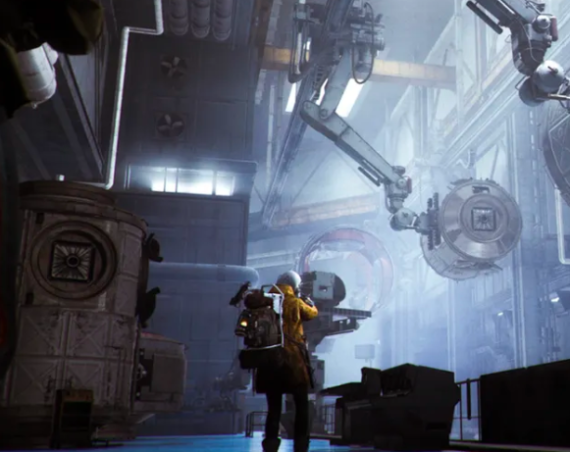
Yoko Taro Reflects on His Creative Journey Without Regrets
Yoko Taro, the visionary creator behind the acclaimed Nier and Drakengard series, shares profound insights into his creative process, emphasizing a continuous evolution rather than a claim to perfection.
The Art of Game Development: A Clay-Making Analogy
In a recent conversation with Archipel, Yoko Taro likened the process of crafting a game’s story to shaping a cube out of clay. He explained:
“Building a story is like making a cube out of clay. You mold it, but every time you look, you notice a side is crooked. You adjust it, only to find another imperfection elsewhere. This cycle feels endless.”
This analogy powerfully illustrates the iterative nature of creative work in game development. As Taro notes, creators are often caught in a perpetual loop of identifying and refining flaws, aiming for an ideal that seems ever elusive.
Balancing Creativity with Constraints
Despite the desire to perfect his creations endlessly, Taro acknowledges the realities of finite time and resources. Deadlines inevitably intervene, compelling developers to finalize their projects. Instead of frustration, he describes a nuanced relationship with his work that continues to evolve even after completion:
“The deadline finally hits, and you need to stop. Your feelings toward the work keep evolving. I’ve never felt I’ve made the perfect cube or scenario, but I’ve made the necessary efforts.”
The Emotional Journey of a Creator
Taro reflects on the bittersweet emotions intertwined with finishing a game. While there is a sadness in no longer being able to continue refining the work, he finds motivation in starting anew rather than revisiting past projects. This approach underscores a growth mindset prevalent among innovative creators.
- No regrets: Taro expresses no regrets about his past work, emphasizing the importance of progress over perfection.
- Continual learning: Each project lays the groundwork for the next, embodying a journey rather than a destination.
- Creative renewal: Instead of reworking old ideas, Taro prefers to begin fresh, aspiring to improve with each new endeavor.
Insights from Industry Trends and Research
Yoko Taro’s sentiment aligns with broader trends in creative industries where iterative development and embracing imperfection are increasingly valued. Research in creative psychology highlights that perfectionism can hinder productivity and innovation, whereas a flexible mindset fosters resilience and sustained creativity (Keller & Bless, 2008).
Moreover, in the rapidly evolving game development landscape, studios must adapt quickly to changing player preferences and technological advancements. According to a 2024 report by the International Game Developers Association (IGDA), 80% of developers see iteration and adaptability as critical to project success.
Case Study: Iterative Success in Game Development
Take the example of FromSoftware, makers of Dark Souls, whose development philosophy embraces gradual refinement. Similar to Taro’s approach, their titles evolve through constant feedback and iteration, often accepting that games will never be flawless but can continually improve.
Conclusion: Embracing Imperfection as a Creative Imperative
Yoko Taro’s reflections offer a compelling perspective for game developers and creators worldwide. His analogy of crafting a clay cube serves as a reminder that creative work is an ongoing process shaped by iteration, learning, and emotional engagement.
While no creator may achieve absolute perfection, the journey of continual improvement and acceptance of imperfection drives innovation and artistic fulfillment.
Key Takeaways
- Iteration is fundamental: Continuous refinement is part of the creative process.
- Deadlines necessitate closure: Projects must conclude, even if imperfect.
- Embrace evolving feelings: Creators’ relationships with their work change over time.
- Start fresh for growth: Building anew fosters innovation rather than reworking old ideas.
- Balance perfectionism: Excessive perfectionism can hinder creative progress.
Yoko Taro’s insights reinforce that in the dynamic field of game development, embracing imperfections and focusing on continuous growth can lead to enduring success and meaningful artistry.


